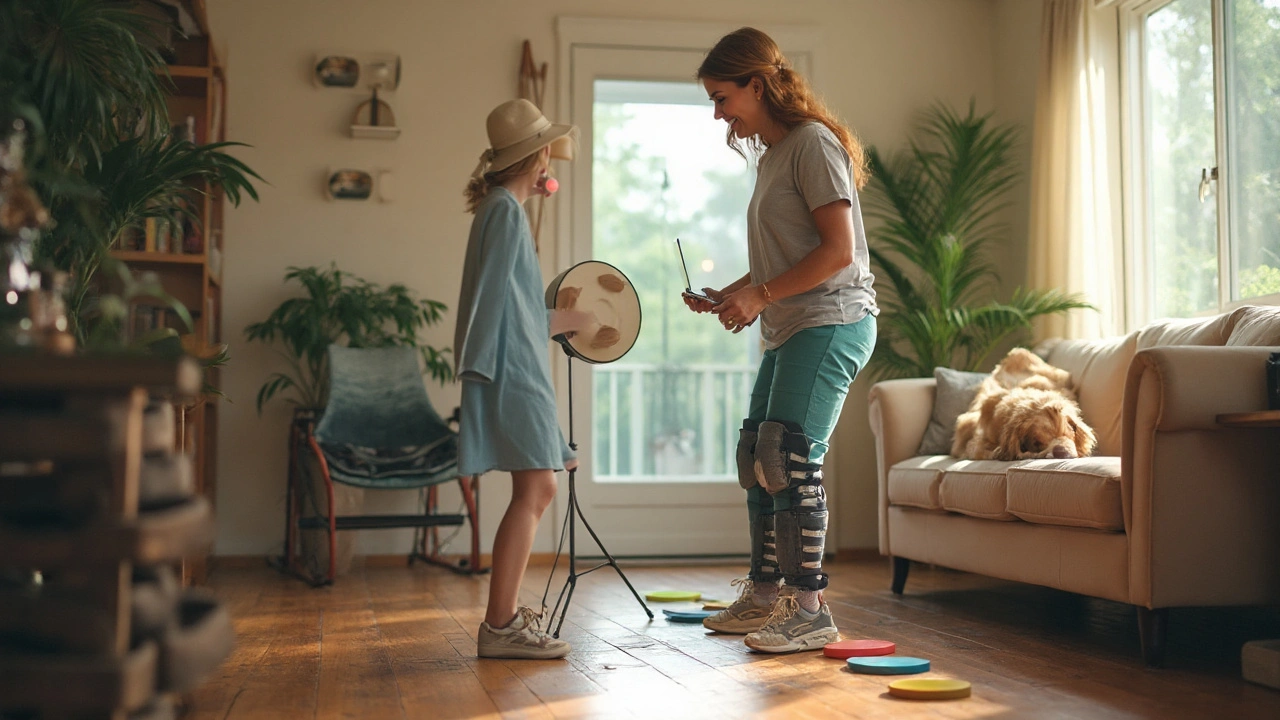Anxiety and Fatigue Relief – Quick Tips for Everyday Calm and Energy
If you’re scrolling through articles looking for a way to shake off that constant nervous feeling and the heavy slump that follows, you’re not alone. Anxiety and fatigue often travel together, feeding each other like a loop you can break with the right moves. Below you’ll find practical, evidence‑based habits that fit into a busy day without needing a PhD.
Everyday habits that cut anxiety
First off, breathing works. Try a 4‑7‑8 pattern: inhale for four seconds, hold for seven, exhale for eight. Do it three times and you’ll notice a calmer mind within minutes. Pair this with a short walk outside. Natural light and gentle movement lower the stress hormone cortisol, and you don’t need a gym membership to get the benefit.
Second, caffeine can be a stealth anxiety trigger. If you’re feeling jittery, swap one cup of coffee for green tea or decaf. The lower caffeine content still gives a gentle lift but reduces that shaky edge.
Third, limit screen time before bed. Blue light tells your brain it’s still daytime, which keeps the fight‑or‑flight system on. Turn off devices at least 30 minutes before sleep, read a paperback, or listen to calm music. A solid night’s sleep is the single biggest antidote to both anxiety and fatigue.
Boosting energy without crashes
Food is fuel, not a fix‑it‑later. Aim for balanced meals that combine protein, healthy fats, and complex carbs. Think grilled chicken with quinoa and roasted veggies, or a Greek yogurt parfait with berries and nuts. This combo steadies blood sugar, so you avoid the mid‑afternoon slump.
Hydration matters too. Dehydration can masquerade as tiredness and make anxiety feel worse. Keep a water bottle at your desk and sip regularly—about two liters a day for most adults.
When you need a quick pick‑me‑up, reach for a small handful of almonds or a piece of fruit instead of an energy drink. The natural sugars and healthy fats give a smoother lift without the jittery crash.
Finally, incorporate brief movement bursts during the day. A set of 10 squats, a few stretches, or a minute of jumping jacks can reboot circulation and mental alertness. You’ll feel less sluggish and more in control.
These habits are simple, but consistency is key. Try adding one new habit each week and watch how your anxiety eases and your energy steadies. If you’re dealing with medical conditions like AFib or diabetes, talk to your doctor before making big changes—especially around caffeine and exercise.
Looking for deeper dives? Our tag also includes articles on related topics, such as coping with depression linked to heart rhythm issues, safe online purchases of prescription meds, and natural supplements that support mood and stamina. Browse the list to find the pieces that match your needs.
Remember, feeling better isn’t about a single miracle; it’s about stacking small, doable steps. Start with a breath, a glass of water, and a short walk. Your brain and body will thank you, and the cycle of anxiety‑fatigue will start to unwind.
Music Therapy for Relapsing‑Remitting Disease: Evidence, How-To, and 2025 Care Tips
- Benjamin Aghaki-Allen
- Health & Wellness
- 5 comment
Clear, evidence-backed guide on using music therapy for relapsing-remitting conditions like MS. When it helps, how to do it, safety tips, NZ access, and tracking.
VIEW MORECategories
Popular posts
-
Hatch-Waxman Act: How It Shaped Generic Drug Access in the U.S.
Benjamin Aghaki-Allen -
Antitrust Issues in Generic Substitution: How Pharma Tactics Block Cheaper Drugs
Benjamin Aghaki-Allen -
Fiber for GI Health: Soluble vs. Insoluble Choices
Benjamin Aghaki-Allen -
CBT for Chronic Pain: How Cognitive-Behavioral Therapy Helps Manage Persistent Pain
Benjamin Aghaki-Allen -
Multiple Manufacturers: NTI Drugs and Switching Between Generics
Benjamin Aghaki-Allen
Popular tags
- side effects
- medication safety
- online pharmacy
- generic drugs
- medication errors
- drug side effects
- dietary supplement
- gut health
- blood pressure medication
- alternatives
- medication adherence
- Hatch-Waxman Act
- drug interactions
- weight loss
- dosage
- weight management
- quality of life
- cheap generic Zoloft
- affordable sertraline
- Claritin
